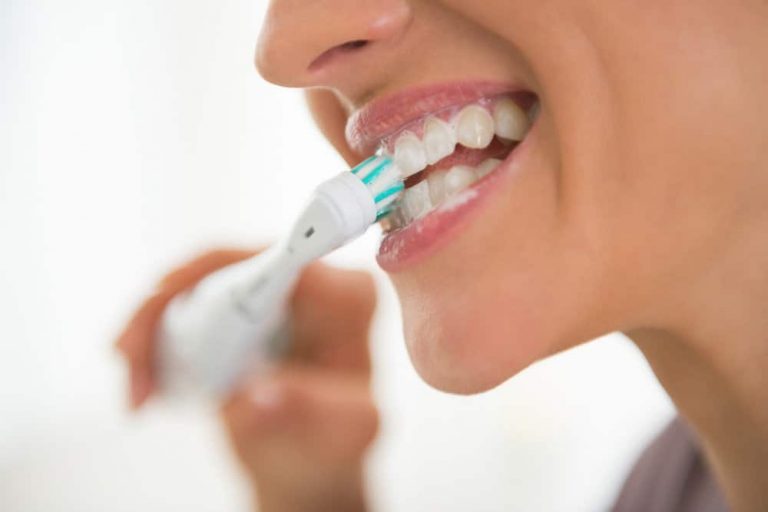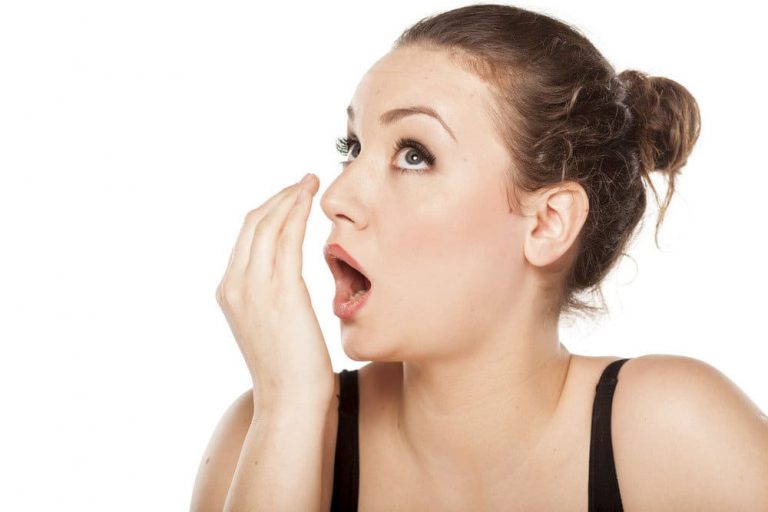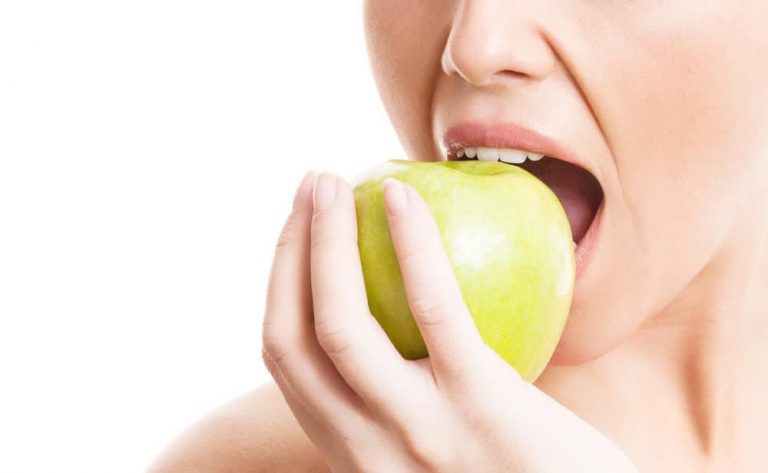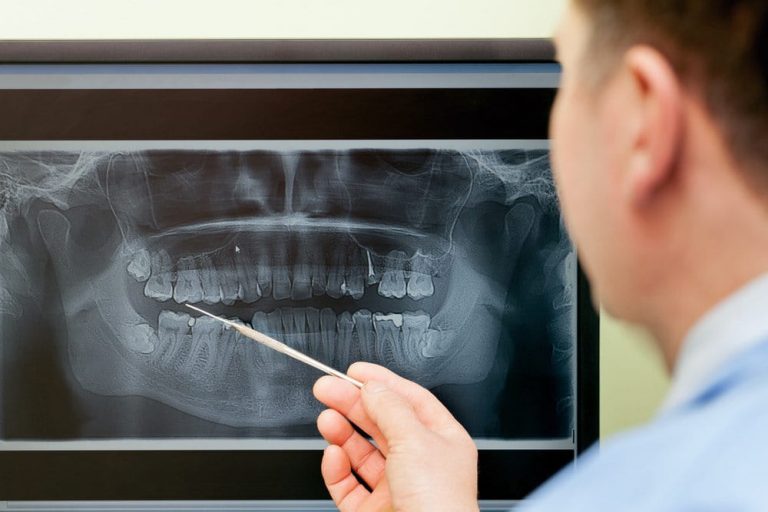
Preventative dentistry is about more than just visiting your dentist twice yearly for an exam and thorough cleaning. In fact, the majority of your preventative care is done at-home as a part of your normal hygienic routine. Many residents use manual toothbrushes to remove debris and plaque from their teeth. However, electric brushes have become widely popular in recent years, leaving some to wonder whether one type is better than the other.
Did you know…
the American Dental Association does not lean toward one type of brush over the other? It does, however, acknowledge that people with upper body mobility restrictions may better benefit from an electric toothbrush instead of a manual brush. Regardless of which type you decide is right for you, the ADA recommends that all brushes be soft-bristled so as to avoid abrasions that can lead to decay and receding gum lines.
Frequently Asked Questions
Which toothbrush should I be using?
You can effectively brush your teeth with either a manual toothbrush or an electric one. However, the rapid movements of motorized versions may be more effective at removing plaque from the teeth and gum line. If you have questions about which toothbrush is best for you, speak with your dentist about it at your next visit. He or she may recommend an electric brush with an oscillating head or a brush that includes a timer to let you know how long to brush.
What types of results should I be getting from by toothbrush?
Regardless of whether you choose an electric brush or a manual brush, it should be easy for you to maneuver in your mouth and behind your back teeth. If the head is too big, it may not be effectively removing plaque from your teeth.
My electric toothbrush was expensive. Do I need to change it as often as a manual brush?
Yes. Your toothbrush should be replaced at least once every three to four months or whenever you notice fraying. However, most electric toothbrushes come with interchangeable heads. In other words, you won’t need to replace the entire device – only the brush itself.

Brushing your teeth is probably a standard part of your daily routine, but chances are you aren’t following the American Dental Association’s guidelines for cleaning your teeth properly. The ADA currently recommends that you brush your teeth at minimum of two times each day – preferably morning and night or anytime you eat foods that contain sugar. When you brush, your toothbrush should be tilted at a 45 degree angle to your gum line. As you brush, be sure to remove debris from every surface of the teeth – including the backs of the teeth, near the gum line, and on chewing surfaces. It is also important to brush your tongue, as bacteria can accumulate there and cause malodorous breath.
Did you know…
that the type of toothbrush you use makes a difference in your oral health? The ADA recommends using a soft-bristled toothbrush with a head that is ergonomically proportioned to the inside of your mouth. Many patients erroneously believe that medium or hard-bristle toothbrushes are more efficient; but these brushes can actually cause abrasions to the teeth and gums, making them more vulnerable to decay. The ADA also recommends replacing your toothbrush about four times yearly or whenever the bristles become frayed.
Frequently Asked Questions
Should I change my brushing habits?
You may need to change your brushing habits if you are experiencing signs of poor oral hygiene. Examples of common symptoms include bleeding or reddened gums, excessive plaque build-up, decaying teeth and receding gum lines. To find out if you are brushing correctly or if you need to change your brushing habits, make an appointment with your dentist for a full consultation.
What should I expect if I begin brushing my teeth correct?
The benefits of proper tooth brushing techniques may not be experienced immediately, but they are noticeable long-term. Over time, brushing too hard or not brushing enough can produce oral health complications that cannot be reversed and require special treatment. By adopting proper brushing habits, you could avoid expensive dental bills in the future.
Is there anything else I need to do in addition to brushing properly?
Yes. It is important that you also floss daily and use toothpaste that contains fluoride each day. You should also schedule dental exams and professional cleanings in at least twice per year.

Having bad breath can be an embarrassing problem – especially if you are regularly face to face with other people. Known professionally as halitosis, bad breath plagues many people every day. Most cases of bad breath can be remedied by efficiently brushing the teeth. However, some types of bad breath are chronic or recurring, which may warrant a visit to the dentist.

Did you know…
that bad breath can be caused by something as simple as eating too much garlic, or that it could be a serious symptom of a disease? Some of the most common causes of bad breath include dry mouth, certain medications, use of tobacco, poor dental hygiene, and oral infections. In rare cases, bad breath may be a sign of diseases like cancer or gastroesophageal reflux.
Frequently Asked Questions
Do I need treatment for my bad breath?
If your bad breath does not improve despite self-care techniques, such as dietary adjustments and thorough tooth brushing, you may need to see a dentist about pursuing professional treatment. Keep in mind that short-term remedies like gum, breath mints, and mouthwash may temporarily freshen breath, but they are not a solution to the underlying problem.
What should I expect my dentist to do about my bad breath?
Your visit will begin with an examination and questions about your daily habits, such as the types of foods you eat and the medications you take. Your dentist may then inspect your mouth for signs of decay, infections or gum disease that could be causing your bad breath. If your chronic bad breath cannot be traced to an oral problem or daily habit, you may be referred to a physician for further evaluation.
Is there anything I can do to maintain better breath?
Yes. If bad breath is a source of embarrassment for you, try to keep breath fresheners on-hand at all times. Sleep with your mouth closed, as this prevents dry mouth and helps tame morning breath. Eliminate odor-causing foods from your diet, such as garlic and onions, and make an effort to brush your teeth and tongue every morning and night. Finally, be sure to visit your dentist for professional cleanings at least twice per year to remove built-up plaque that can cause chronic halitosis.

Your body works hard to convert the foods you eat into energy. You may not think twice about what you are eating – especially when it comes to grabbing an afternoon snack or sipping on a vanilla latte on your commute. But the food you put in your mouth affects more than just your waistline. The truth is, your diet has a direct effect on your overall dental health. Developing good eating habits can lead to excellent oral health free of decay and gum disease. The American Dental Association recommends avoiding certain foods that can expedite decay, such as foods high in sugar.
Did you know…
that eating a slice of pie in the afternoon could be more dangerous to your oral health than eating the same piece of pie as a dessert after dinner? According to the ADA, snacking between meals – especially on sugar-filled foods – can more rapidly lead to decay than eating the same foods with meals. If you must eat the mid-afternoon pie, reach for the toothbrush afterward. Better yet, swap the pie for a nutritious, sugar-free snack like string cheese or some baby carrots.
Frequently Asked Questions
Should I change my eating habits to better my oral health?
Probably. But never start a new diet without first consulting with your physician. If you are on a special diet, be sure to speak with your dentist about the types of foods you should be eating that comply with your diet and can also optimize your oral health.
What types of changes will my dentist recommend?
In addition to avoiding sugary foods, the ADA recommends drinking plenty of water each day and avoiding snacks between meals whenever possible. It is also important to consume nutritious foods from each of the major food groups, including whole grains, vegetables, lean proteins, low-fat dairy, and fruits. Not only will you improve the health of your teeth and gums, but you may drop a pant size too!
Are there any other habits I should be adopting to improve my oral health?
Yes. You should be flossing daily and brushing twice daily using a soft-bristled toothbrush. You should also be visiting your dentist at least twice per year for oral exams and professional dental cleanings.

Digital x-rays are a more streamlined way of taking dental radiographs. Like traditional x-rays, digital versions provide an in-depth view of the structures of the mouth, helping dentists detect complications and develop effective modes of treatment. Digital x-rays are capable of revealing hidden caries, bone erosion, and even tooth decay hiding beneath restorations.
Requiring less radiation and no film to process, digital x-rays have become the standard for oral imaging. These systems produce instant digital images that can easily be enhanced and enlarged for a more accurate diagnosis. The images are captured, stored, and even transmitted via in-office computers. In fact, dentists can easily print or email copies of x-rays in just seconds.
Dental x-rays make for a better and more efficient patient experience. Office visits are faster, patients are exposed to less radiation, and radiographs can be sent to a specialist for review in a fraction of the time necessary for traditional film x-rays.